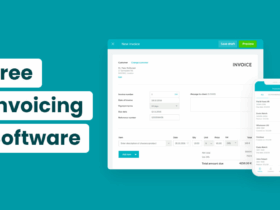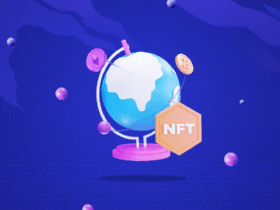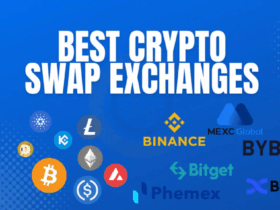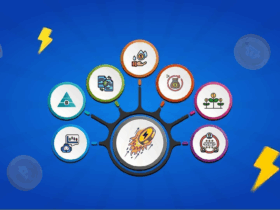What Is Crypto Airdrop?
A cryptocurrency airdrop is a promotion technique used by blockchain and cryptocurrency companies to give out free tokens or cryptocurrencies to a certain user base. This distribution is frequently carried out as part of a marketing campaign, as a benefit for owning a specific cryptocurrency, or to spread word of a new initiative.
Different types of airdrops occur, including planned distributions to current token holders and unexpected gifts. To acquire the free tokens, participants typically need to fulfill certain requirements, including possessing a particular cryptocurrency or signing up for the airdrop. Airdrops can be used for a variety of things,
Airdrops can encourage adoption, create a community, and draw in possible investors, among other things. They come with hazards, including as the possibility of frauds and the potential for the token’s value to be diminished, but they also give receivers the chance to acquire valuable assets without making a direct financial investment. Therefore, before taking part in crypto airdrops, users should use prudence and do their homework.
What Is Rubicon Airdrop?
Rubicon is a decentralized open order book exchange built on Ethereum Layer 2 networks. It powers the peer-to-peer trading of ERC20 tokens (Ethereum-based crypto assets). The protocol can be used to trade and swap between ERC20 tokens and provide liquidity in democratic liquidity pools.
Rubicon doesn’t have an own token yet but could launch one in the future. Making a trade or providing liquidity may make you eligible for an airdrop if they launch an own token.
Basic Rubicon Airdrop Points
| Basic | Details |
|---|---|
| Token Name | Rubicon Airdrop |
| Platform | ETH |
| Support | 24/7 |
| Total value | N/A |
| KYC | KYC Is Not Requirement |
| Whitepaper | Click Here To View |
| Max. Participants | Unlimited |
| Collect Airdrop | Click Here To Collect Free Airdrop |
How To Claim Rubicon Airdrop Step-by-Step Guide:
- Visit the Rubicon dashboard.
- Connect your Optimism wallet.
- Now make a trade, swap or provide liquidity on Rubicon.
- Rubicon doesn’t have an own token yet but doing the above transactions may make you eligible for an airdrop if they launch an own token.
- You can use Hop Protocol to deposit assets from ETH mainnet to Optimism. This way you could also become eligible for the Hop Protocol and Optimism speculative retroactive airdrops.
- Please note that there is no guarantee that they will do an airdrop and that they will launch their own token. It’s only speculation.
How To Check Rubicon Airdrop Is Real Or Fake
Checking the legitimacy of a crypto airdrop can be a bit tricky, as scammers often use sophisticated techniques to create fraudulent airdrop campaigns that appear to be legitimate. Here are some steps you can take to verify the authenticity of a crypto airdrop:
- Look up the Source: For announcements on the airdrop, keep an eye on Rubicon’s official website and social media accounts (or the blockchain project connected to the airdrop). Search for official writings, blog entries, or press releases.
- Check URLs twice: Make sure the website you are visiting is Rubicon’s or the related project’s official website. Scammers frequently produce bogus websites that closely resemble legitimate ones but have slightly different URLs.
- Verify the information: Read the airdrop’s official documentation and instructions. Verify that the data corresponds to what you’ve seen on authorized channels.
- Abstain from Suspicious Links: Do not open any links from questionable sources or download any files from them, especially if they were delivered to you by email or social media direct messages. Be wary of phishing scams at all times.
- Verify profiles on social media: Verify the project’s official social media profiles. To be sure you’re following the legitimate accounts on websites like Twitter, look for the blue verification checkmark.
- In summary, it’s important to conduct thorough research, verify the source and instructions, look for feedback from other users, and trust your instincts when evaluating the legitimacy of a crypto airdrop. By taking these steps, you can minimize the risk of falling for a fraudulent airdrop and protect your assets and personal information.
What are the risks of participating in an airdrop?
Despite the potential rewards, taking part in an airdrop has certain risks that people should be aware of before participating. First off, the possibility for fraud and phony airdrops is one of the main risks. False airdrop campaigns are frequently created by malicious actors to entice participants into contributing personal information or cryptocurrency, then they abscond with the users’ funds. Checking the project’s official channels and announcements is essential to confirming an airdrop’s validity.
Second, there’s the chance of security and privacy violations. Individuals may be compelled to reveal personal information or wallet addresses in order to participate in some airdrops, leaving them open to phishing or identity theft attacks. It is important to check that the platform or project managing the airdrop has effective security controls in place.
Rubicon Airdrop Pros Or Cons
Pros of participating in an airdrop:
- Decentralization: Rubicon takes advantage of blockchain technology’s decentralized nature because it runs on Ethereum Layer 2 networks. This increases security and trust by lowering the possibility of centralized management and censorship.
- Open Order Book: By providing users with visibility into market prices and liquidity, an open order book enables them to make well-informed trading decisions. This may result in more equitable and effective marketplaces.
- Support for ERC20 Tokens: Rubicon allows for the trading of ERC20 tokens, which make up the vast majority of tokens in the cryptocurrency market. Users can exchange and swap a variety of assets thanks to this on the platform.
Cons of participating in an airdrop:
- Ethereum Layer 2 Scalability: Although Layer 2 solutions scale better than the Ethereum mainnet, they may still experience problems in times of strong demand, which could result in congestion and higher gas costs.
- No Native Token (At the Present): Rubicon does not currently have a native token. For users used to taking part in ecosystems with native coins, this can limit the utility and incentives.
- Regulatory Uncertainty: Decentralized exchanges, particularly ones that provide liquidity, may encounter regulatory difficulties in many jurisdictions. When using such services, users should be aware of any potential regulatory hazards.
Rubicon Airdrop Final Verdicts
The world of decentralized finance (DeFi) and blockchain-based trading platforms is constantly growing, and Rubicon is a promising addition to this landscape. It allows users to trade ERC20 tokens, which are crucial to the Ethereum ecosystem, peer-to-peer as it is a decentralized open order book exchange that runs on Ethereum Layer 2 networks.
The ability of Rubicon to promote liquidity through democratic liquidity pools is one remarkable element that raises the platform’s usability and effectiveness. It’s vital to remember that Rubicon does not currently have a native token of its own. Nevertheless, it’s important to keep a watch on the project because they might eventually introduce their own cryptocurrency.









































